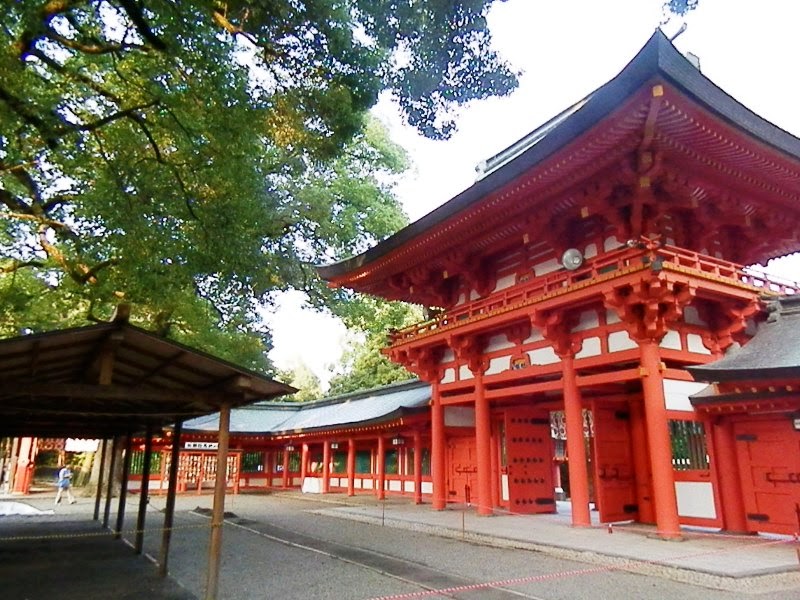A Shinto Shrine around Tokyo
Christian Judaists Peter, James and Paul
Christianity was not established immediately after the resurrection of Christ Jesus from the crucifixion.
The Apostles and other believers of Christ Jesus did not think that they were now no more Judaists but Christians. They had no doubt that they would continue to be Judaists. They never dreamed that Christ Jesus launched a new religion being separated from Judaism.
The history of the Jerusalem Church begins from the day of Pentecost. On this day of circa A. D. 30, the tongues of fire came down on Apostles and filled them with the Holy Spirit, enabling them to speak in different languages (Acts 2:4-5). After this, the Jews who gathered in Jerusalem to celebrate Pentecost (Lev. 23:15-16) from all over the world heard the celebrated sermon of Peter about Christ. Around three thousand people joined the Church on that day (Acts 2:41). All this happened on the southwestern hill of Jerusalem, known today as Mount Zion. After the next sermon which Peter and John delivered in the Temple, the number of converted men grew to five thousand (Acts 4:4). The life of the first Christians was concentrated around the Temple, where they were going to pray and to preach Christ every day (Acts 2:46; 3:1; and 5:21,42). They held everything in common (Acts 2:44) and those who were rich supported the poor (Acts 2:45 and 4:34-37). The breaking of bread in homes (Acts 2:46) is an allusion to celebrating of the Holy Eucharist.In the situations depicted in the Gospels and the Acts of the Apostles, followers of Christ Jesus all lived as Judaists but not as Christians. They must have talked about teaching of Christ Jesus but must not have denied Judaism and their faith in Judaism and Torah and other Judaist books. Probably they came to mention Christ Jesus less and less to avoid friction and troubles with other Judaists.
The proselytizing activities of the Apostles immediately brought about oppression from the Jewish Sanhedrin (Acts 4:1-23 and 5:17-20, 26-40). After the martyrdom of Stephen (Acts 7), a persecution of Christians began in Jerusalem, and everybody except the Apostles left the city for Judea and Samaria (Acts 8:1). Saul, a Pharisee and a student of Rabbi Gamaliel (Acts 22:3), was one of the fiercest persecutors. Since the Apostles had to comfort those who were in prison and serve as a coordinating center for scattered Christians, they stayed in Jerusalem. The dispersed Christians began their preaching of the good news throughout the whole country. The eighth, ninth, and tenth chapters of Acts describe the missionary journeys of Philip, one of the seven deacons of the Jerusalem Church, and of Peter and John. Sometime after 32, the event which changed the whole history of the Church took place: the bloodthirsty persecutor Saul was converted and became the holy Apostle Paul who by his missionary activities turned the Church into the universal means of humankind’s salvation.
Around 35, St. Paul made his first visit to Jerusalem to see Peter (Gal. 1:18). He writes that of all the Apostles only Peter and James were there (Gal. 1:19). While other Apostles must have gone from Jerusalem to spread the good news throughout the Roman Empire and visited the city only from time to time, James became the head of the local Christian community (Acts 12:17; 15:13-21; 21:18; Gal. 1:19; and 2:9,12). Clement of Alexandria in his sixth book of Hypotyposes writes that “Peter and James and John, after the Ascension of the Savior, did not struggle for glory, because they had previously been given honor by the Savior, but they chose James the Just as Bishop of Jerusalem.” In the spring of 49, the first Church council was convened at Jerusalem (Acts 15). Whether Gentile Christians should obey the law of Moses and be circumcised were the main matters of concern at this council.
http://morewhoiswho.tripod.com/history.html
Consequently, Christian Judaists came to be gradually absorbed in the Israelite public while leaders and priests of the Temple of Jerusalem attacked Christian Judaists and killed James. And then he First Jewish–Roman War (66–73 CE) started to wipe out Christian Judaists with other Israelites.
On the other hand, Christianity was established outside Jerusalem and Judea or specifically around Rome. Christianity separated from Judaism when the Gospels of Mark, Mathew, Luke, and John were written and issued to be read widely.
It is very impressive that the Acts of the Apostles is finished abruptly as Paul was living in Rome. Till the moment, there was no Christianity, but only Christian Judaism existed. So, they were not stories of early Christians but of the last Christian Judaists that are depicted in the Gospels and the Acts.
Christianity started when Paul quit being a Christian Judaist after the last scene of the Acts. But strangely, there are no documents, written and preserved till today, that report how Christian Paul or Peter lived and died. It is so since the Gospels and the Acts are books that still belong to the domain of Christina Judaism.
*** *** *** ***
Mar 7:26 The woman was a Greek, a Syrophenician by nation; and she besought him that he would cast forth the devil out of her daughter.
Mar 7:27 But Jesus said unto her, Let the children first be filled: for it is not meet to take the children's bread, and to cast it unto the dogs.


